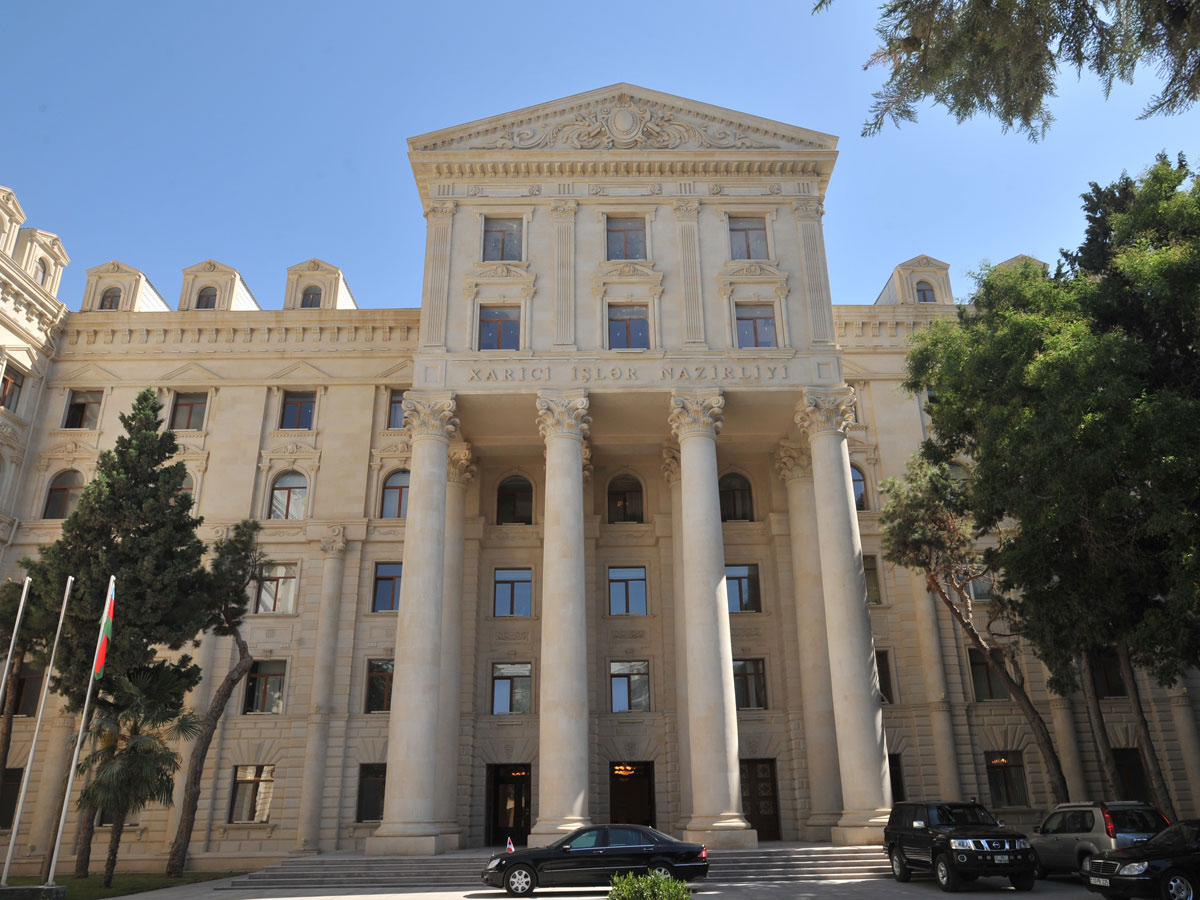Baku, Azerbaijan, Feb. 24
By Elmira Tariverdiyeva – Trend:
Membership in the European Parliament does not give anyone the right to violate laws of another country, the rules and principles of international law, and does not give anyone immunity, said the Azerbaijani Foreign Ministry’s Spokesman Hikmat Hajiyev.
Such persons, members of the European Parliament, as a citizen of Luxembourg Frank Engel, a citizen of the Republic of Cyprus Eleni Theocharous and a citizen of the Czech Republic Jaromir Stetina, call for violation of Azerbaijan’s internationally recognized integrity and are constantly working for these purposes, propagandizing the illegal regime created by Armenia as a result of aggression and occupation of Azerbaijan’s lands, reads the Azerbaijani Foreign Ministry’s statement.
Prosecutor General's Office of Azerbaijan put three members of the European Parliament - Frank Engel, Eleni Theocharous and Jaromir Stetina - on the international wanted list. They are suspected in repeated crossing of the guarded state border of the Republic of Azerbaijan beyond checkpoints in order to promote the unrecognized regime called "Nagorno-Karabakh Republic" at the international level.
"Despite the fact that all the international community, including the EU, recognizes the territorial integrity and sovereignty of Azerbaijan, these persons, supporting Armenia and the fictional regime, are trying to nullify the efforts of the OSCE Minsk Group co-chairs on the peaceful settlement of the [Nagorno-Karabakh] conflict,” reads the statement.
“They are trying to deliberately aggravate the situation in the region and carry out lobbying activities in favor of Armenia. Abusing the membership in the European Parliament, they undertake these illegal actions which contradict the universal values that form the basis of the EU and the European Parliament," the statement said.
“These persons’ attempts to hide behind "democracy" and membership in the European Parliament, made after a criminal case was initiated against them, do not correspond to any moral, ethical and legal norms,” Hajiyev said.
The conflict between the two South Caucasus countries began in 1988 when Armenia made territorial claims against Azerbaijan. As a result of the ensuing war, in 1992 Armenian armed forces occupied 20 percent of Azerbaijan, including the Nagorno-Karabakh region and seven surrounding districts. The 1994 ceasefire agreement was followed by peace negotiations. Armenia has not yet implemented four UN Security Council resolutions on withdrawal of its armed forces from the Nagorno-Karabakh and the surrounding districts.






